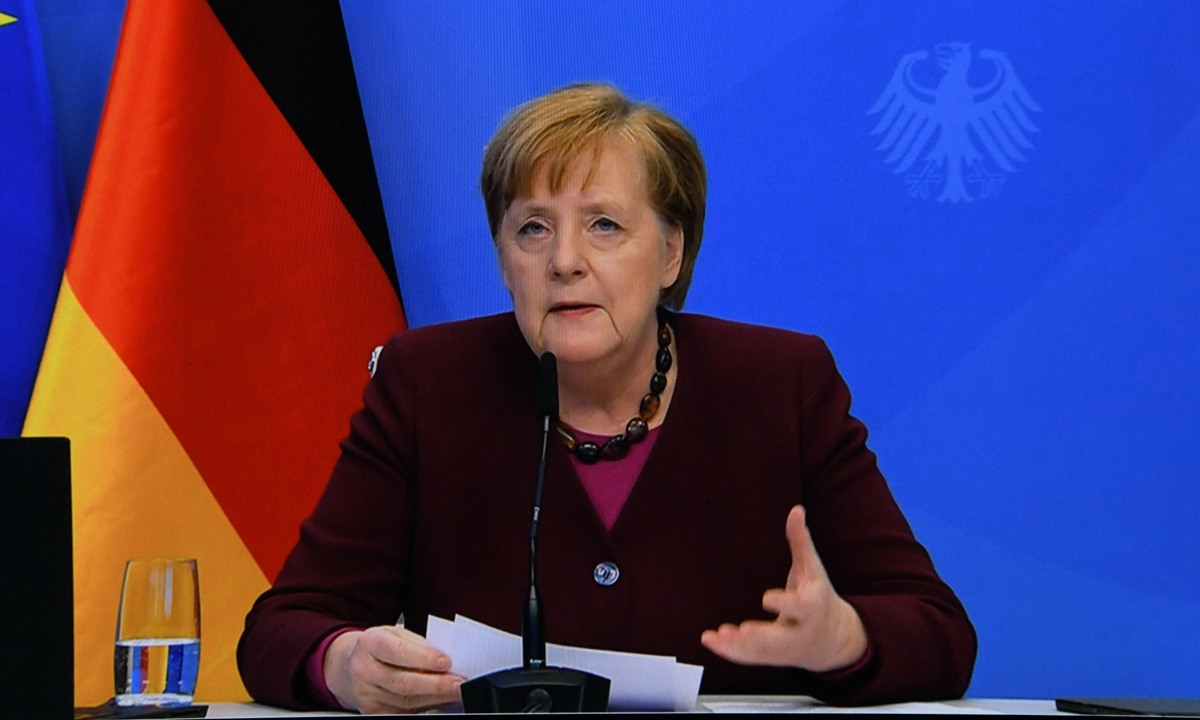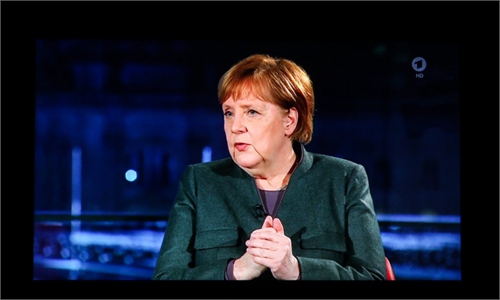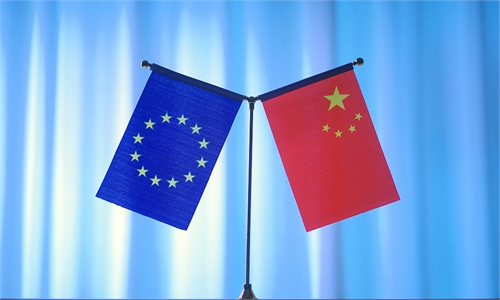German conservatives mull post-Merkel
Crunch talks held by operatives seeking to hold onto their political grip

German Chancellor Angela Merkel addresses at CDU Party Congress in Berlin, Germany, on January 15, 2021. Photo: VCG
With less than six months to go until a general election and their poll ratings plummeting, German Chancellor Angela Merkel's conservatives were meeting for crunch talks on Sunday as pressure builds to pick their chancellor candidate.
Long-time Merkel ally Armin Laschet, 60, took over as leader of the chancellor's CDU party in January, and would normally be first choice to lead the CDU and its Bavarian affiliate CSU into the elections on September 26.
Yet as the conservatives' poll ratings plummet over their recent handling of the coronavirus crisis, some are calling for Laschet to step aside in favor of the more charismatic CSU leader Markus Soeder, 54.
After several rounds of shadow boxing on talk shows and in the press, the two men will have the chance to stake their claims when they each deliver a speech to conservative lawmakers on Sunday.
Though neither Laschet nor Soeder has officially announced their candidacy, Bild newspaper declared Sunday's meeting "the weekend of truth" in the race to succeed Merkel.
While a final choice of candidate is not expected immediately, conservative parliamentary leader Ralph Brinkhaus called Friday for a decision to be made "in the next two weeks."
The ultimate decision will most likely be made behind closed doors, with Laschet telling broadcaster ZDF that the conservatives would pick the candidate who "best suited our election program."
Yet in an interview with Spiegel magazine on Wednesday, Soeder insisted that the candidate needed to be "accepted by the whole population, not just the party."
The Star Trek fan and fancy-dress loving Bavarian consistently beats Laschet in popularity polls, with a recent survey by public broadcaster ARD showing that 54 percent of Germans thought Soeder would be a good candidate, compared to just 19 percent for Laschet.
As leaders of Germany's biggest federal states by population and area respectively, North-Rhine Westphalia premier Laschet and Bavarian chief Soeder have also exchanged blows over their leadership in the pandemic.
Laschet's reputation as the reliable continuity candidate took a hit at the end of March, when Merkel criticized his state's slowness to reimpose restrictions despite rising infection rates.
Soeder jumped on the opportunity, praising Merkel's handling of the pandemic and arguing that the Chancellor should help decide who would be her successor.
While Laschet remains more likely to win over party bigwigs, Soeder has also already drawn the support of several CDU lawmakers, as conservative MPs eye falling poll ratings with growing nervousness.


